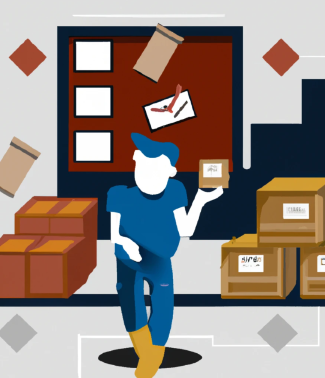Artificial intelligence (AI) is already transforming the retail industry and especially its online branch, by enabling retailers to personalize customer experiences, automate operations, and optimize decision-making. Organizations pushing the boundaries of innovation, that will embrace this new technological capability in a way that leverages their product information resources, will be best positioned to drive big profits from it and build a loyal customer base.
Here are some of the most common benefits this industry can have from using AI:
Omnichannel and personalized experiences
Omnichannel shopping experiences are designed to offer customers a seamless shopping experience, whether they shop online, in-store, or both. Using AI-powered tools, businesses can now offer personalized shopping experiences, customised promotions and targeted marketing, regardless of the customer's location and easier than ever before.
Product recommendations
Retailers and customers alike are well served by AI in processing historical customer data and providing personalized product recommendations. By analyzing customer behavior and purchase history, AI can suggest products that are likely to be of interest to the customer, and do it better than similar technologies used today and in the past.
This helps retailers adapt their marketing efforts to each individual customer, which not only enhances the shopping experience but also increases the chances of cross-selling and upselling.
.png.aspx)
Chatbots
AI-powered chatbots can provide customer service 24/7, answering frequently asked questions, handling returns, and resolving issues. Chatbots can also suggest products and offer discounts, increasing the likelihood of a purchase.
The latest incarnation of this kind of functionality would be ChatGPT, which represents a substantial leap ahead when it comes to how Artificial Intelligence can serve the individual, directly or by enabling companies to provide relevant information at a whole new level. It just goes to show how quickly this space is evolving.
Price optimization
AI can analyze data on competitors, demand, and inventory to determine the optimal price for a product. It can process large amounts of data and provide insights to help businesses make data-driven pricing decisions through analyzing market trends, dynamic pricing, personalized pricing, predictive analytics and price testing. This allows retailers to maximize revenue while remaining competitive.
Inventory management
By leveraging its capabilities to analyze big amounts of data, AI can play a significant role in inventory management. It can identify patterns and make predictions. Here are a few ways AI can help businesses better manage their inventory: demand forecasting, optimizing reorder points, preventing stockouts, reducing waste and enhancing supply chain visibility. Yes, all this can be done by a team of employees, and it is debatable if the human or the AI is better at it. But AI is a lot cheaper and will never ask for a raise. Or, will it?

Fraud detection
Because large amounts of data are involved in identifying patterns that may indicate fraudulent online activity, AI has no match in humans when it comes to detecting online fraud. By using machine learning models working on historical data, as well as natural language processing (NLP) or real-time monitoring, AI can go a long way towards assigning each online customer their own risk score that a business can use in their efforts to mitigate security risks.

Visual search and immersive shopping experiences
AI can analyze images of products to provide accurate search results. This enables customers to search for products using pictures instead of text, making it easier to find what they are looking for.
AI also begins to facilitate immersive shopping experiences in conjunction with AR and VR. A good example of immersive shopping using AR is provided by Swedish home goods manufacturer and retailer, IKEA. The IKEA Place app allows users to virtually place furniture items in their own homes and to see how the product will fit in their own space. Probably not a lot of AI there. Yet.
Supply chain and logistics optimization
AI can analyze data on suppliers, logistics, and operations to optimize the supply chain. This includes predicting demand, optimizing delivery routes, and reducing lead times.
Retailers can also use AI's help inside their own warehouses, in managing their inventory and fulfillment processes. With the ability to track inventory levels in real-time, businesses can ensure that they always have the products customers want in stock. AI can help manage the internal logistics of order fulfillment, ensuring that orders are picked from shelves quickly and efficiently.
Wrapping up: overall, the implementation of AI technology can greatly benefit retailers and provide customers with a more seamless and personalized shopping experience. By offering targeted marketing, personalized recommendations, and real-time customer support, retailers can build stronger relationships with their customers and increase sales. As AI technology continues to advance, the potential for innovative solutions in the retail landscape is limitless.
Note: Images in this article were generated using the DALL-E2 AI image creation engine, with minimal post-editing.